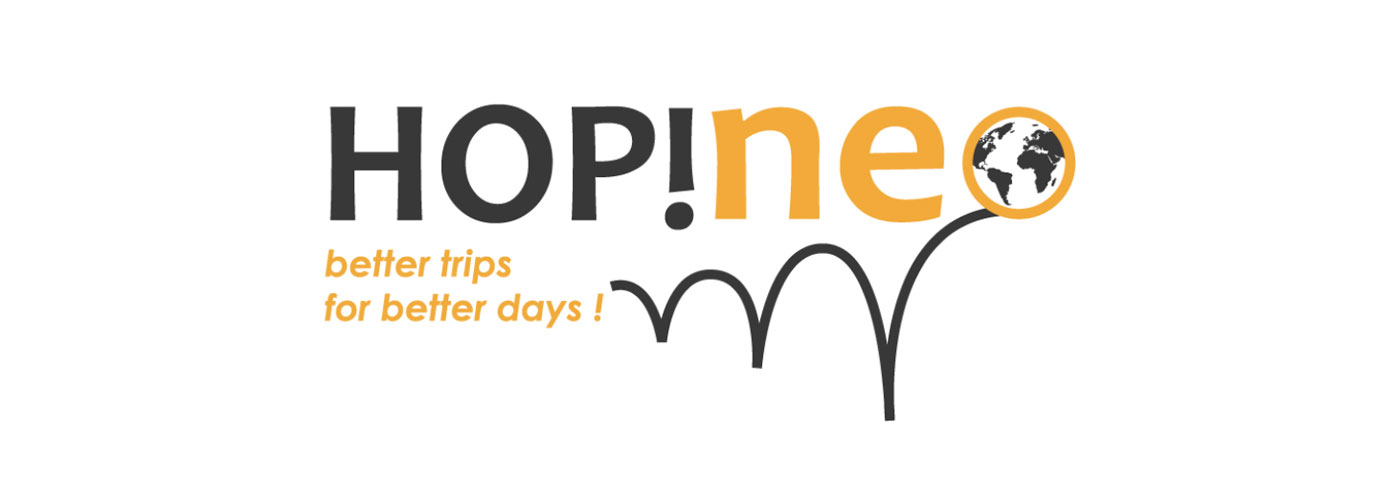1. What inspired you to create your business?
We both are entrepreneurs. We both have been raised with an inspiration to do our part to build a better world, little by little, with humility. But the trigger of this project, which is, for us, the best thing we have ever started, definitely is our encounter and the first trip we made together.
While coming back from 3 weeks in Indonesia, we looked at each other and it appeared obvious that we had to find a way to work together while traveling longer, better, being useful to the people we met and eventually being useful to the world.
So, it might sound cheesy but Love, in its larger possible meaning, is the main inspiration of Hopineo.
2. How does being responsible help your business attract potential customers?
Being responsible and enhancing responsible tourism is the aim of Hopineo. The travellers who choose our platform to find a destination or a volunteering opportunity are people willing to do their part in RT empowerment and promotion.
In the big picture, an increasing number of people and professionals are looking closely to new ways of making business and organising society, as the actual global model clearly shows its limits. By embracing a collaborative model, where everyone can do his part and benefit from the others various contributions, we think we answer this growing need.
3. How do you engage guests in your responsible tourism activities?
The specific volunteer opportunities we offer on the website allow guests to become actors of RT empowerment. We put them in relationship with small independent responsible tourism facilities all over the world in need of a one-time help, and they barter their time and competencies in exchange for room and food.
Not only do they discover what responsible tourism really is, beyond the usual clichés, but they also help their host to improve their responsible approach and business thanks to their skills and the good practices collected by all the other volunteers of the community.
4. What is the responsible tourism initiative of which you are most proud?
Since July 2014, when we quit our jobs and began our nomad workers life, 14 other ambassadors joined the team, and more than 50 people use their spare time to give a help with translations and many other issues.
Thanks to all this energy, we now have more than 300 good practices specific to responsible tourism businesses, coming from 19 countries, available in three languages on the website.
Along with the numerous practical resources also available in open data, this represents a unique field knowledge dedicated to small responsible tourism businesses, which will soon be disseminated by hundreds of volunteers around the world. And we are looking forward to growing this knowledge endlessly!
5. What positive impacts does your tourism business have on the community/environment where you are based?
We are not sure we can really answer this question. But during the past 18 months, almost 100 small independent responsible tourism facilities have been visited worldwide by one of Hopineo’s ambassador for a one-time help.
These HopTrips allowed them either to increase their responsible tourism field knowledge (good practices for energy, water and waste management, construction, visitors awareness, local heritage promotion, biodiversity, local development, agriculture and catering, transport, access…) or to find new solutions to marketing and development issues.
Some universities and local tourism boards also benefited of Hopineo’s field expertise, as we and other ambassadors were required to make talks or even courses in India, France, Colombia and other Latin American countries.
6. What has been the biggest challenge you have faced?
Back in 2014, we had imagined a solution for us to travel, be useful and make a living out of it. Then we understood how we could make a difference by scaling the project. We spent the last year structuring the project, testing economic models, exploring opportunities and developing tools.
Hopineo’s new website will be online in the very first days of January. We will start a 6 to 12 months journey through West Africa by the end of January. We are now organising and managing a community of tens of volunteers while implementing new models of financial sustainability for the project, pushing the collaborative model and not-money-centred approach we believe in.
Our biggest challenge is being faced right now! And it’s fun!
7. What advice would you give to any entrepreneur starting a responsible tourism business?
Keep in mind that responsibility and innovation are not destinations; they are endless processes of improvement, ways of life. So do what you really believe in! Regardless what it makes you look like: an alien or on the opposite, very common. As long as you believe in what you are doing, everything is easier. And don’t be afraid of changing your mind, as long as you stick to your soul!
What questions do we regularly ask to ourselves? “What do I really want? How would I do it in an ideal world? Am I true to my aspirations and to myself?”


